The 2025 International Symposium of Corporate Governance was held at Tsinghua University from Sept. 6-7. The symposium was hosted by the Tsinghua University School of Economics and Management (Tsinghua SEM) and the China Academy of Corporate Governance (CACG) of Nankai University, and organized by the China Center for Financial Research (CCFR) of Tsinghua University. The symposium delved into the transformative impact of technologies like AI, big data, and brain science on corporate governance. The event also saw the release of several indices and research findings, explored new concepts and pathways for corporate governance in the digital-intelligent era, and offered suggestions on strengthening corporate governance to promote high-quality development of the Chinese economy, particularly its capital markets.

A group photo at the symposium
Distinguished guests from government, industry, and academia attended the symposium, including: Ma Jiantang, former Party secretary of the Development Research Center (DRC) of the State Council; Wang Hongwei, vice president of Tsinghua University; Liang Qi, deputy Party secretary of Nankai University; Li Wei’an, chair professor at Nankai University and Dean of CACG; Song Zhiping, president of the China Association for Public Companies (CAPCO); Huo Xuewen, chairman of Bank of Beijing; Li Daokui, dean and professor of the Academic Center for Chinese Economic Practice and Thinking (ACCEPT) of Tsinghua University; and Chen Jinghan, former vice-chancellor of the University of Surrey and chair professor at the University of Kent, U.K.
Speaking at the symposium, Wang Hongwei pointed out, "Corporate governance is the core of the modern corporate system and the cornerstone of a healthy market economy." He emphasized that excellent corporate governance is the fundamental guarantee for capital market prosperity, high-quality economic development, and building a strong financial nation.
Liang Qi gave praise to the International Symposium of Corporate Governance, and said that since its inception in 2001, the event has become a vital academic exchange platform leading practical and theoretical innovation and discussion in the field of corporate governance in China.
Li Wei'an released the 2025 Corporate Governance Index of Chinese Listed Companies (CCGINK) and China Listed Company Green Governance Index (CGGI). Data shows that the overall CCGINK score in 2025 was 64.94, a mere increase of 0.07 from the previous year and the smallest growth recorded in five years. Li stated that after 23 years of development, the "marginal improvement" effect in Chinese corporate governance has significantly weakened, indicating that the system has entered a critical transformation period that requires a breakthrough beyond its current "ceiling."
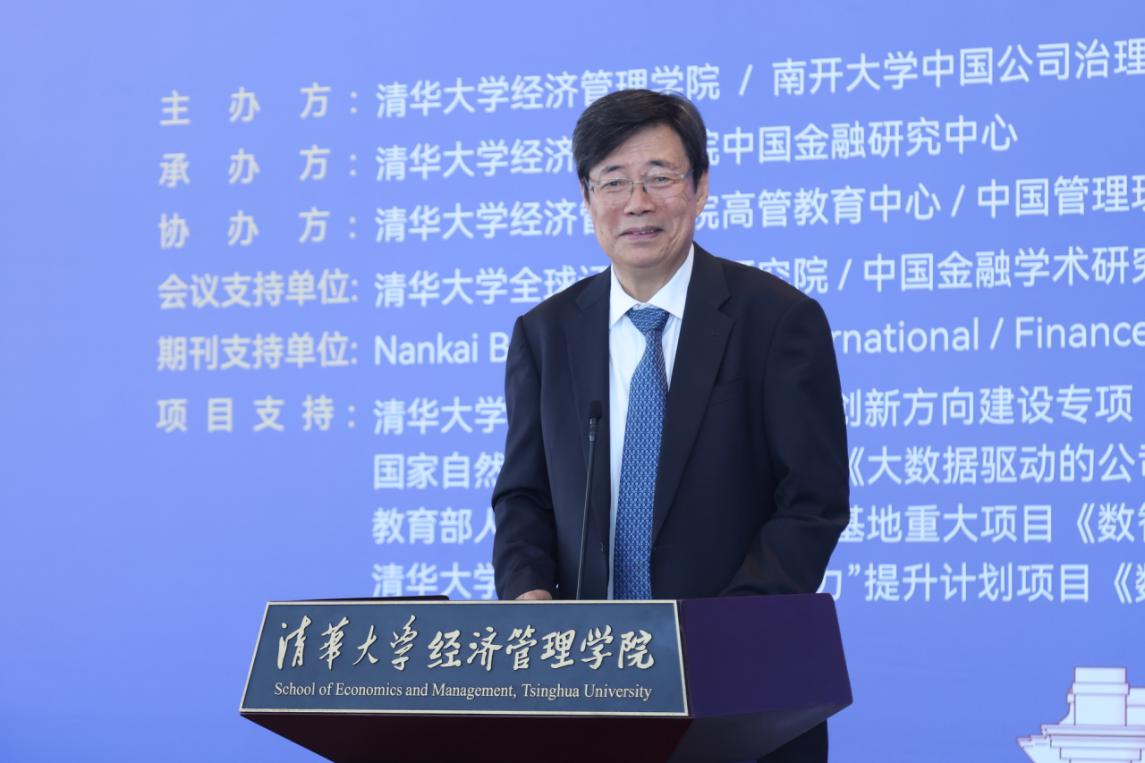
Li Wei'an delivers a speech.
Ma Jiantang pointed out that data elements can be reused, whose quantity, quality, functionality, and value can progressively increase through utilization. The more data is used, the higher its value becomes. Its value appreciates rather than depreciates with use, which means that the vitality of data elements lies in their utilization. The restriction on data property rights depends on the sensitivity and confidentiality of the data's informational content. Data involving citizen privacy, corporate secrets, and state secrets are subject to strictly limited property rights. For public data, the primary requirement is not transaction but transparency, specifically the disclosure of aggregate information data.
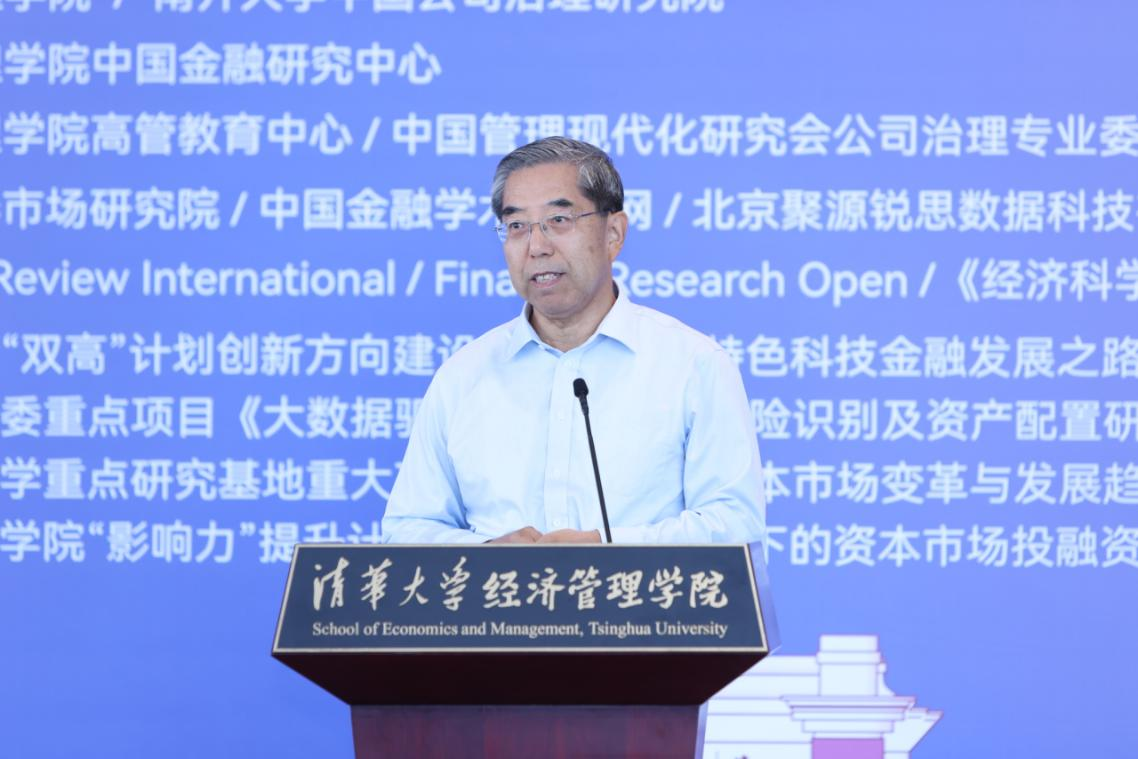
Ma Jiantang delivers a speech.
Song Zhiping proposed that the 2025 CCGINK has now integrated elements of digital governance, which will help promote the deep integration of digital technology into corporate governance structures, enabling a leap forward in governance capabilities. Huo Xuewen said that digital technology endows corporate governance with new efficacy, primarily addressing three matters: standardizing decision-making, controlling risks, and creating value. Digitization can provide 24/7 uninterrupted analysis for corporate governance. Li Daokui's research on enterprises revealed the challenge of intergenerational succession among private entrepreneurs, which he explained ultimately boils down to the issue of corporate governance. The reconciliation of the interests and mindsets of older and newer generations of entrepreneurs requires solutions through corporate governance, Li said.
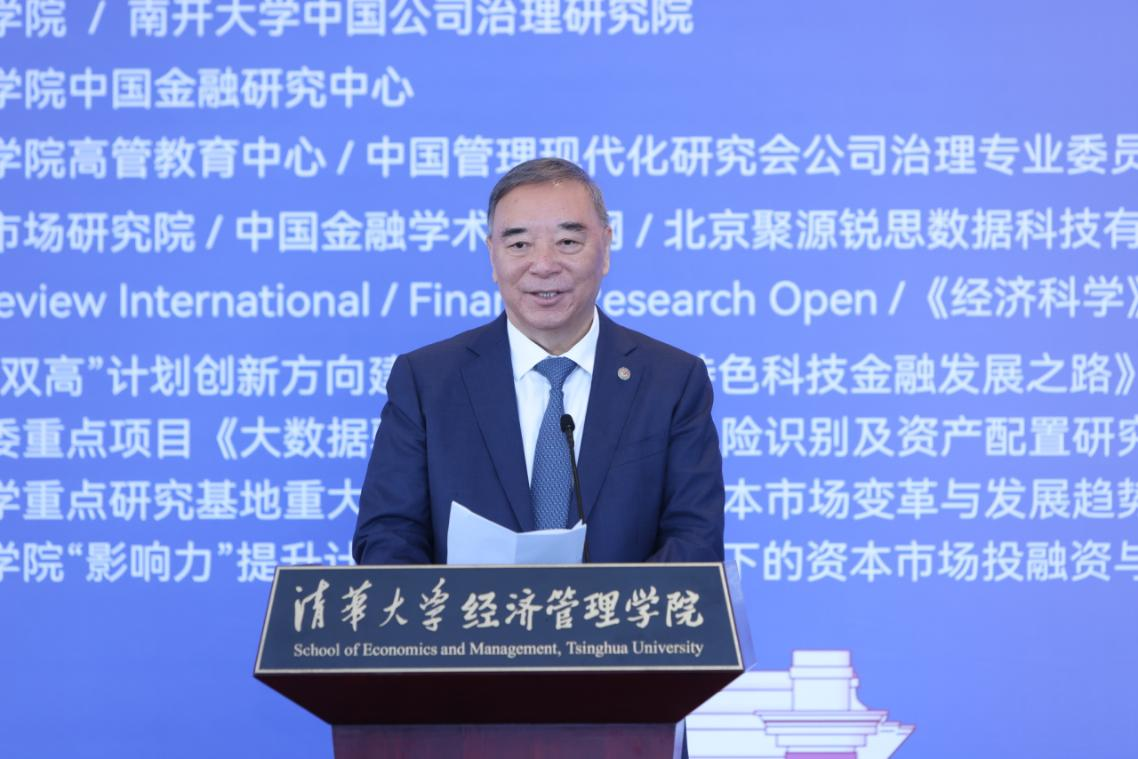
Song Zhiping delivers a speech.
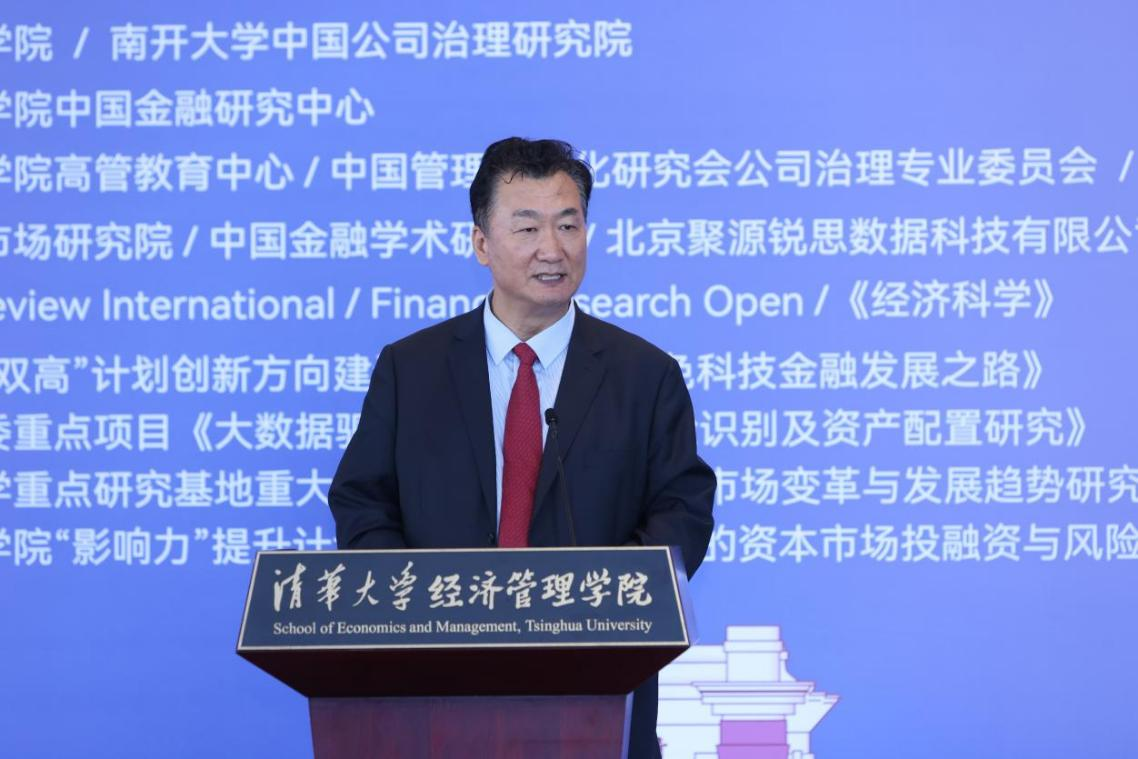
Huo Xuewen delivers a speech.
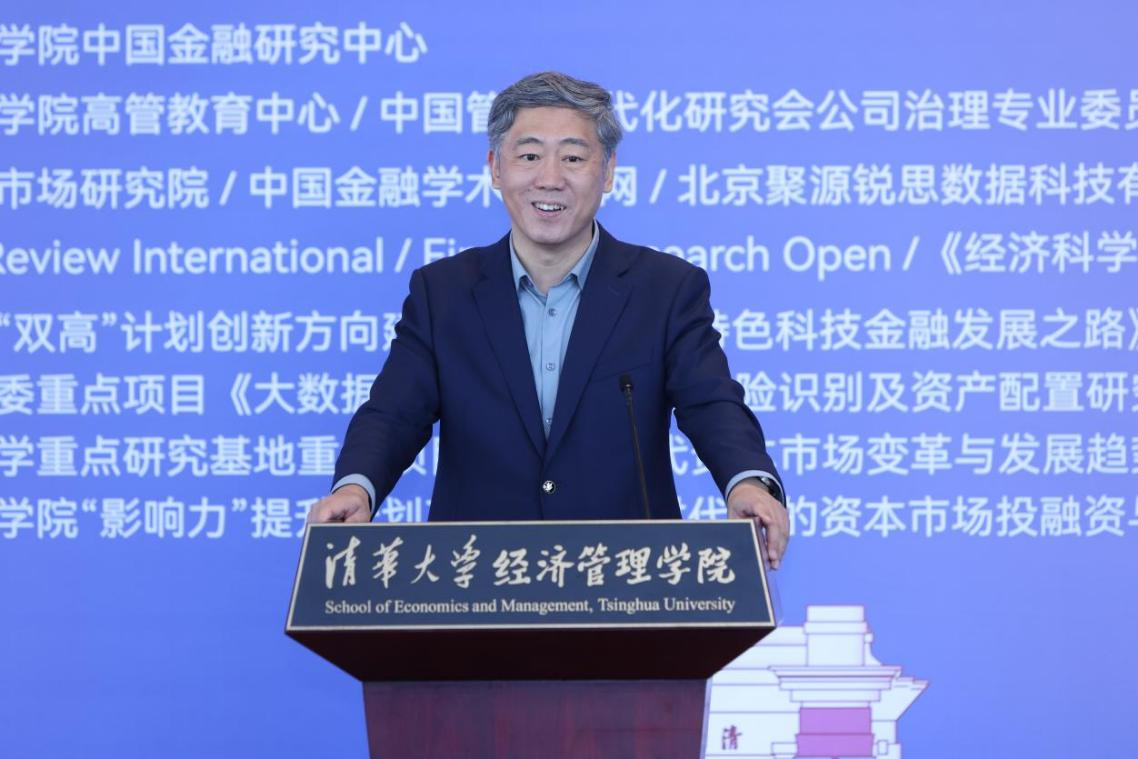
Li Daokui delivers a speech.
During the symposium, the book Reinventing Corporate Governance was launched. Its authors are led by Lu Yao, professor of finance at Tsinghua SEM, and the new book consists of her 20-year research and teaching achievements. Its content covers the historical evolution of corporate governance, current situation analysis, and future trend prospects. Bai Chong-En, distinguished professor of liberal arts at Tsinghua University and dean of Tsinghua SEM, and Hong Yonggang, deputy Party secretary and editor-in-chief of CITIC Publishing Group Co. Ltd., unveiled the new book.
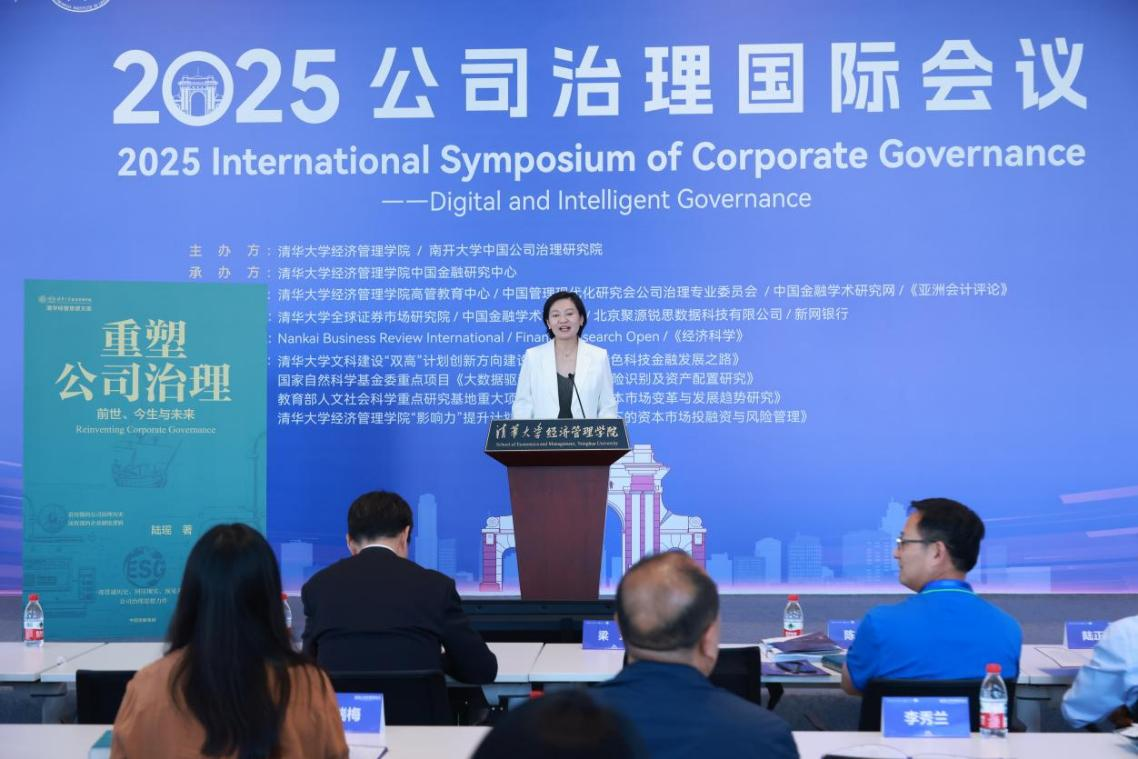
Book launch of Reinventing Corporate Governance
The symposium combined keynote speeches with roundtable forums to deepen industry-academia-research collaboration. In addition to focusing on the hot topic of AI, the event also featured five parallel forums: "Digitally Driven Capital Markets and Sustainable Development," "Corporate Governance and Institutional Innovation in the Digital Age," "Digitally Empowered Green Development and Corporate Innovation," "Institutional Innovation under AI and Digital Transformation," and "AI, Digital-Intelligent Transformation, and Corporate Governance Innovation." Outstanding papers in the field of corporate governance were also awarded during the symposium.
Editor: Ren Zhongxi
 Latest News
Latest News